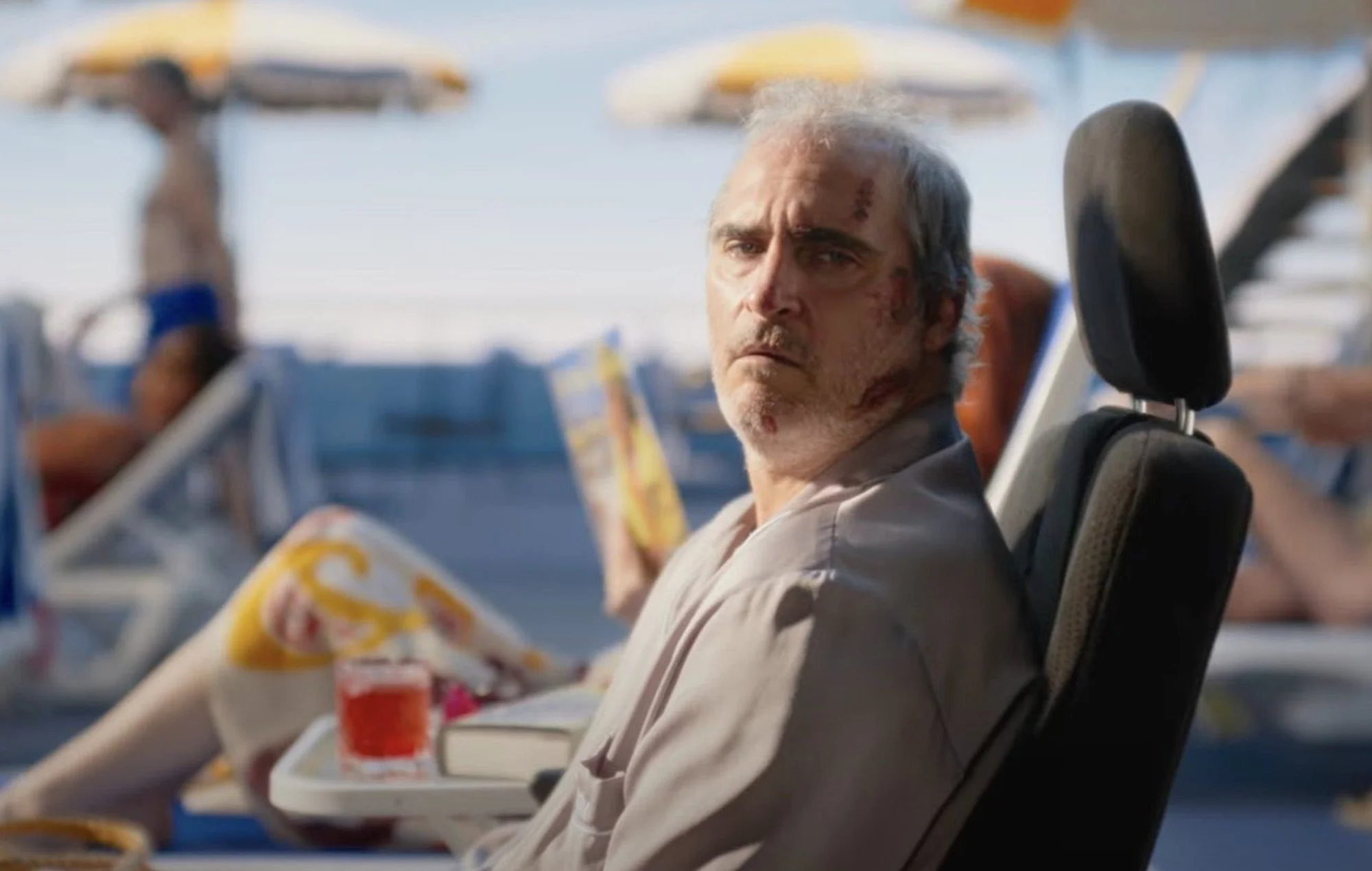Beau is Afraid
Directed by Ari Aster
Running time: 2hrs58 | REVIEWED BY GUY LODGE
Joaquin Phoenix in Beau is Afraid
That Ari Aster has a sense of humour — albeit a keenly morbid one — is no surprise. His first two films, Hereditary and Midsommar, were both blood-freezing art-horror outings that found riotous comedy in the least expected or conventionally appropriate of places: when a young child literally loses her head in the former, it’s a scream-out-loud moment that turns, by wince-inducing degrees, into high, hilarious farce. Yet Beau is Afraid, his third and most gloriously id-escaped film to date, flips the ratio of Aster’s previous work to revelatory effect: it’s a big, brash and often sensationally funny black comedy, inkily and rather poetically punctuated by the horror of the human condition. The connecting tissue between all three films is the dread of mortality, which in Beau is Afraid is given a run for its money by the terror of living.
It’s hard to say if Beau (Joaquin Phoenix), a middle-aged, chronically anxious manchild still living in the long, beaky shadow of his mother, fears death or life more — so the film splits the difference by unfolding largely in a nightmarish in-between, where timelines melt and merge, and distorted memories and outsized phobias take aggressive physical form, ricocheting around a psychological pinball machine the size of Beau’s entire universe. This is the stuff of Kafka, of Kazuo Ishiguro’s The Unconsoled, or of those recurring dreams you have where you simply can’t get to the corner shop because something always gets in the damn way — except filtered through an American comic sensibility equally indebted to Charlie Kaufman and Mel Brooks, and emphatically its own strange beast despite all those reference points.
Over a three-hour running time — yes, three hours; no, it doesn’t feel it — this kind of baroque chaos could get exhausting and airless. Yet Beau is Afraid remains compelling, moving even, because the story and stakes underpinning all its whirling formal business and mile-a-minute pantomime are so simple: Beau receives word (eventually, after one of the most hilariously protracted phone calls ever written for the screen) that his overbearing mother Mona (Patti LuPone) has been tragically killed by (of course) a falling chandelier, and sets out across the country for her burial.
It’s a Jewish funeral, so time is of the essence; it’s also against him at every turn, as he’s waylaid by traffic accidents, Stepford-esque carers, unhinged Iraq veterans and travelling theatre troupes — obstacles that provide farcical entertainment value in their own right, while each unlocking some facet of Beau’s tortured psyche and blurry personal history. It’s a Homeric quest, pockmarked with frenzied chase scenes and ludicrous dick jokes; one minute it’s sight gags a toddler would laugh at, the next an exquisitely melancholic stop-motion fantasy sequence (animated by the artists behind the experimental Chilean art film The Wolf House, no less) that hurtles forward in time to imagine multiple lives dreamed and unlived.
No surprise that Phoenix, an actor long perched between intense genius and trollish self-mockery, was chosen to anchor all this. It’s hard to imagine any other American actor riding the film’s divergent, unruly impulses with such humane grace and good humour — all while a host of extraordinary character actors, from a gorgonesque LuPone to an eerily Ned Flanders-like Nathan Lane to a positively feral Denis Menochet, get to play their sideshow roles to the rafters. Aster is unimpeachably generous to the actors, and in turn his audience, even in a film that lays his brain (and perhaps other organs) out on a dissection slab; it’s a self-evaluation so vast and intricate that you can examine yourself in some corners of it too, finding both ugly truths and gleefully absurd nonsense in the process.
BEAU IS AFRAID (2023) Written by Ari Aster | Shot by Pawel Pogorzelski | Edited by Lucian Johnston
